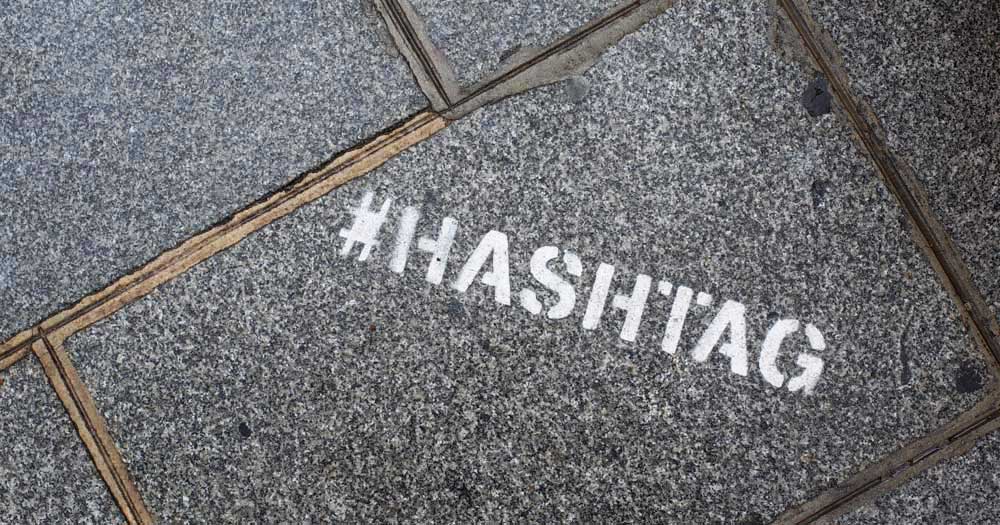
Social media has become the new black when it comes to platforms that are used by young activists to create positive changes in society. Some successful, spontaneous social movements that received attention around the world started on social media. Check out #YesAllWomen, #YouOKSis, and #BlackLivesMatter — do you notice a pattern? That’s right, all of these movements centered around hashtags!
Here at YTH, we believe in and understand the power that hashtags can have in bringing about social change for youth health and wellness. We’ve created and helped to create several hashtag conversations to do just this.
#YTHHIV was a national collaborative tweetchat created by YTH, AIDS.gov, and The National Library of Medicine, which took place two days before National HIV Testing Day in 2014. The chat gave health experts a refreshing opportunity to have a real-time, online conversation. Participants used the hashtag to engage in a purposeful discussion about HIV and young people, filled with fascinating insights and new information. Over 30 organizations and professionals participated in the chat, which reached over 1 million people on Twitter.
#TeenMomsTalkBack was a social media campaign that YTH created in collaboration with University of Colorado Denver School Latino Research and Policy Center, the National Latina Institute for Reproductive Health and Florence Crittendon High School, to help reshape the conversation around teen parenting to be shame-free. The hashtag was revolutionary enough to get the attention of Upworthy, and through the conversation, we were also able to share the messages about shame-free teen parenting with over 1 million people on social media. Our campaign was similar to #NoTeenShame, which was created around the same topic with the help of Gloria Malone, a member of YTH’s Youth Advisory Board. This hashtag campaign was so effective it won an award from the Healthy Teen Network last year.
3 Best Practices for Hashtag Advocacy
When using hashtags to share a message of social good, here are three best practices you can use to create as large an impact as possible:
1) It’s All In the Name
Your hashtag should be easy to understand, short, and connect to some sort of greater cultural moment or talking point that people can instantly grasp.
For example, the hashtag #SurvivorPrivilege went viral on Twitter last year, created by Wagatwe Wanjuki in response to columnist George Will’s victim blaming. While Wanjuki had a large online following, her hashtag had the perfect mix of relevancy, comradery, and comprehension. The backlash against George Will was trending on social media at the time the hashtag was created, which made it immediately noticeable. The hashtag gave people space to share their experiences as survivors of sexual assault. And, for those involved in feminist or anti-violence activism, the hashtag was understood within seconds of seeing it (although it was accessible to those who weren’t).
2) Network and Share
Get partner organizations, social media influencers, and prominent bloggers involved in your hashtag to reach a wider audience. Conduct outreach before you begin (or sometimes even during!) your hashtag campaign. Before you start, identify people who are active on social media and who are also interested in or connected to your topic or cause.
It’s also important to reach out in the right way — sending an email with a vague request for help is not going to yield the best results. Having very specific asks will get you a lot further, especially if you do 90% of the work for them. For example, if you want someone on Twitter to share your hashtag, a great way to approach them is to send a very short email that explains what your campaign, the issue, and why it matters. Then, ask them to share one of the pre-written tweets you provide.
3) Promote It
I can’t stress enough the importance of promoting your own work! It’s amazing how many tools are at your disposal that you can utilize in order to get your hashtags shared and viewed by others.
Write blog posts, create shareable social graphics, make videos, and of course spread the word about your efforts on your organization’s social media accounts! The more effort you put into creating materials and talking about your work, the better the results. If all you do is post to social media, you’re not going to get the leverage your important cause needs.
If you want even more ideas and inspiration, hear from social media experts who will share even more in-depth tips at YTH Live 2015, our annual conference. Learn more about the event and register at yth.org/live.
And, of course, make sure to tweet about the conference using the hashtag #YTHLive!
tags: HIV/AIDS, teenmomstalkback, YTH Live, YTHHIV.
Previous Post
YTH Welcomes Alex Medina to Communications Role